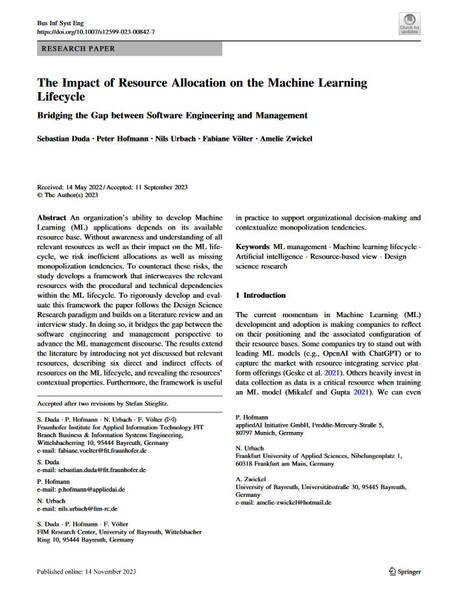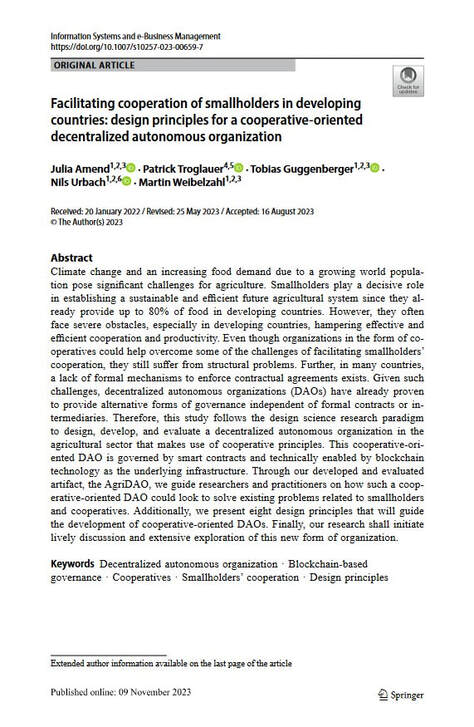|
An organization’s ability to develop machine learning (ML) applications depends on its available resource base. Without awareness and understanding of all relevant resources as well as their impact on the ML lifecycle, we risk inefficient allocations as well as missing monopolization tendencies.
To counteract these risks, our recently pubished study develops a framework that interweaves the relevant resources with the procedural and technical dependencies within the ML lifecycle. To rigorously develop and evaluate this framework, our work follows the Design Science Research paradigm and builds on a literature review and an interview study. In doing so, it bridges the gap between the software engineering and management perspective to advance the ML management discourse. The results extend the literature by introducing not yet discussed but relevant resources, describing six direct and indirect effects of resources on the ML lifecycle, and revealing the resources’ contextual properties. Furthermore, the framework is useful in practice to support organizational decision-making and contextualize monopolization tendencies. Please read more about our research in our latest paper published in Business & Information Systems Engineering. Climate change and an increasing food demand due to a growing world population pose significant challenges for agriculture. Smallholders play a decisive role in establishing a sustainable and efficient future agricultural system since they already provide up to 80% of food in developing countries. However, they often face severe obstacles, especially in developing countries, hampering effective and efficient cooperation and productivity. Even though organizations in the form of cooperatives could help overcome some of the challenges of facilitating smallholders’ cooperation, they still suffer from structural problems. Further, in many countries, a lack of formal mechanisms to enforce contractual agreements exists. Given such challenges, decentralized autonomous organizations (DAOs) have already proven to provide alternative forms of governance independent of formal contracts or intermediaries.
Therefore, our recently published study follows the design science research paradigm to design, develop, and evaluate a decentralized autonomous organization in the agricultural sector that makes use of cooperative principles. This cooperative-oriented DAO is governed by smart contracts and technically enabled by blockchain technology as the underlying infrastructure. Through our developed and evaluated artifact, the AgriDAO, we guide researchers and practitioners on how such a cooperative-oriented DAO could look to solve existing problems related to smallholders and cooperatives. Additionally, we present eight design principles that will guide the development of cooperative-oriented DAOs. Finally, our research shall initiate lively discussion and extensive exploration of this new form of organization. Please read more about our research in our latest paper published in Information Systems and e-Business Management. |
Archives
June 2024
|


 RSS Feed
RSS Feed